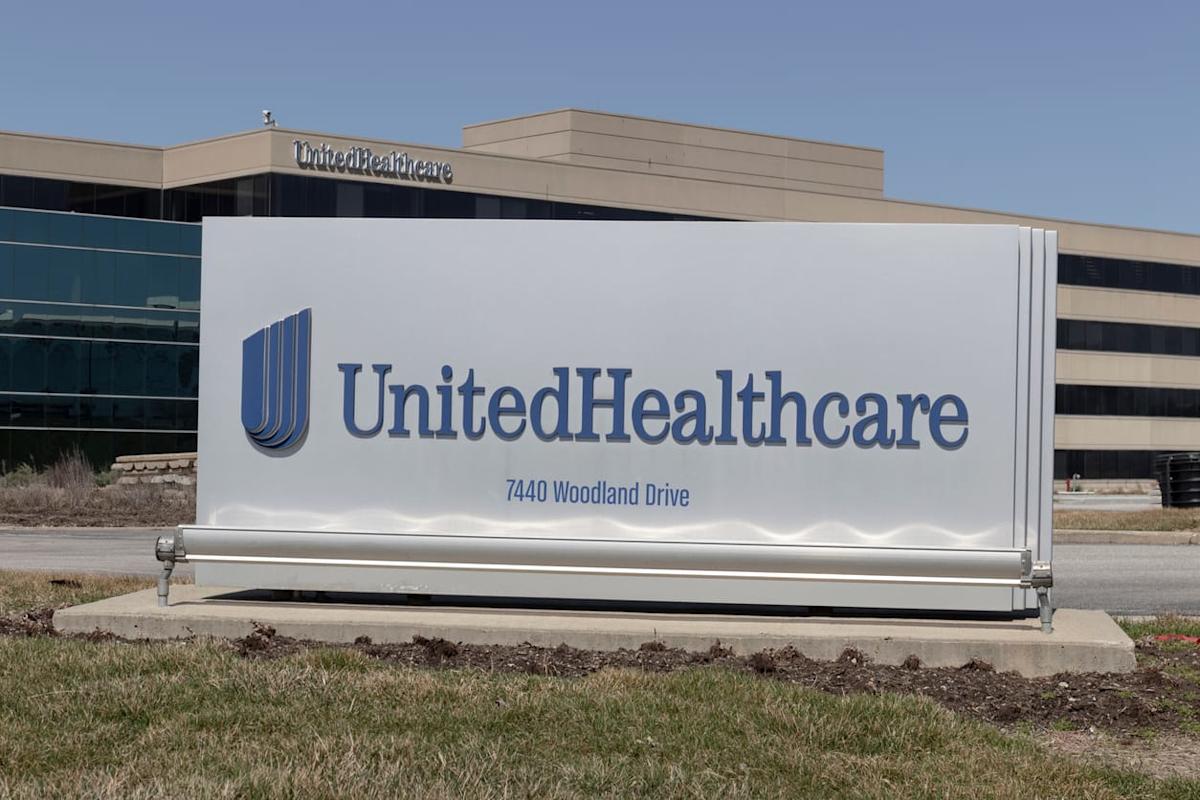UnitedHealth Group: Navigating a Sea of Challenges
The healthcare sector, often considered a safe haven during economic downturns, is not immune to the turbulent winds of market volatility. UnitedHealth Group (UNH), a prominent player in the managed care arena, has experienced a significant stock decline in recent times. This downturn has been fueled by a combination of factors, including escalating costs within its Medicare Advantage segment, an unexpected change in leadership, and increased governmental scrutiny of its billing practices. This article dives into the complexities surrounding UnitedHealth Group, assessing its current position and future potential.
So, what’s been happening? UnitedHealth Group, a healthcare behemoth based in Minnetonka, Minnesota, has seen its stock price plummet. This underperformance is primarily due to factors like soaring Medicare costs, earnings that didn’t quite meet expectations, investigations by the Department of Justice, a damaging cyberattack, and even the sudden departure of its CEO. These challenges have created uncertainty, leading to a significant drop in the company’s stock value. It is worth noting that while these challenges are substantial, there are potential opportunities on the horizon.
In essence, the situation is this: UNH’s stock has taken a hit, and several headwinds are to blame. But what does this mean for investors? Is this a temporary setback, or something more significant? The answer, as always, is complex and requires a deeper look.
Understanding UnitedHealth Group’s Business Model
UnitedHealth Group operates through two primary segments: UnitedHealthcare and Optum. UnitedHealthcare focuses on providing health benefits, while Optum offers a wide array of healthcare services and technologies. The company’s diverse operations have allowed it to establish a strong presence in the healthcare industry, but also expose it to various market forces. Knowing these elements is key to understanding UnitedHealth Group’s position.
What does UnitedHealthcare and Optum do specifically? UnitedHealthcare delivers health benefits, from insurance plans to wellness programs, serving millions of individuals and employers. Optum is a more diverse entity, providing healthcare services such as pharmacy care, data analytics, and technology solutions that aim to improve healthcare outcomes and reduce costs. How do these two parts work together? They create a vertically integrated healthcare system, where benefits and services are closely aligned, helping to manage healthcare costs. This model enables UnitedHealth Group to offer comprehensive healthcare solutions. These two key elements of the business model are crucial for understanding the company’s financial performance and strategic direction.
The company’s market capitalization reflects its significant size and influence in the healthcare sector. At a glance, UNH’s market cap is currently around $255.9 billion. The healthcare giant’s extensive reach and diverse operations provide it with a solid foundation, but also expose it to various market dynamics. How does this affect its stock price? The market capitalization reflects the value investors place on the company and is influenced by a variety of factors, including financial performance, industry trends, and investor sentiment. In the long run, the company’s market capitalization will reflect its ability to navigate the challenges and capitalize on the opportunities in the healthcare landscape.
Analyzing the Headwinds: Challenges Facing UNH
UnitedHealth Group has faced a series of significant challenges that have contributed to its recent stock decline. These challenges include rising costs in its Medicare Advantage segment, a surprise CEO exit, and ongoing federal scrutiny into its billing practices. These factors have created uncertainty among investors, leading to a significant drop in the company’s stock value. It’s worth exploring each factor to fully grasp the situation.
What are the specific problems? The Medicare Advantage segment, which provides health insurance to seniors, has experienced rising costs due to increased utilization of healthcare services and changes in reimbursement rates. Additionally, the sudden departure of the CEO raised questions about the company’s leadership and strategic direction. Furthermore, the ongoing federal scrutiny into the company’s billing practices added to the uncertainty and negatively impacted investor sentiment. Why are these problems so difficult? The combination of rising costs, leadership transitions, and regulatory concerns has created a perfect storm, leading to a significant drop in the stock price and increased volatility.
What are the immediate consequences? The immediate consequences of these headwinds include a decline in stock price, increased market volatility, and potential impacts on future earnings. How does the company plan to address these challenges? The company is taking several steps to address these challenges, including cost-cutting measures, strategic investments, and proactive engagement with regulators. In summary, these headwinds have created a challenging environment for UNH, and the company’s ability to navigate these challenges will be crucial for its future success.
Bernstein’s Bullish Outlook: A Glimmer of Hope?
Despite the challenges, Bernstein, a well-respected brokerage firm, maintains a bullish outlook on UnitedHealth Group. Bernstein recently named UnitedHealth Group one of its “Top Picks” ahead of Q2 earnings, pointing to its discounted valuation and the potential for a strong margin recovery in the coming years. This perspective highlights a belief in the company’s long-term prospects, despite the current headwinds. What’s driving Bernstein’s optimism?
What factors support Bernstein’s optimistic stance? Bernstein anticipates normalization in Medicaid and Medicare Advantage trends. Also, Bernstein expects UNH’s earnings to double by 2029, with a compound annual growth rate (CAGR) of 19%. What does this mean for investors? This positive outlook suggests that Bernstein sees value in UNH’s stock, viewing the current challenges as temporary and anticipating a strong financial rebound in the coming years. Are there any potential risks? While Bernstein’s outlook is positive, it is essential to consider the potential risks associated with the healthcare industry, such as regulatory changes, competitive pressures, and unexpected cost increases.
In short, Bernstein’s perspective offers a valuable counterpoint to the negative news surrounding UNH. The firm’s analysis suggests that the stock might be undervalued, creating an attractive entry point for investors who can withstand short-term volatility. The firm believes in the potential for a strong margin recovery in the coming years, supporting a more positive outlook. The brokerage firm is seeing opportunities where others might see obstacles. It’s like looking beyond the storm clouds and seeing the potential for sunshine.
Valuation and Entry Point: Is UNH Stock a Bargain?
Following the recent sell-off, UNH’s valuation is significantly depressed, according to Bernstein. Its forward price-to-earnings ratio is 13.95x – well below the sector median and roughly a 40% discount to its own 5-year average earnings premium. This discount suggests that the stock may be undervalued, presenting a potential opportunity for investors looking for a value investment. Should investors be interested?
Why is the valuation so low? The drop in the stock price, combined with the company’s strong earnings potential, has led to a lower price-to-earnings ratio. What does this mean for investors? A lower P/E ratio can be interpreted as a sign that the stock is undervalued, potentially offering a higher return on investment when the market recognizes the stock’s true value. Is this a good entry point? Bernstein analyst Lance Wilkes sees this as a prime opportunity to buy UNH stock at a discount. The stock’s depressed valuation might indicate that the market has overreacted to the recent headwinds, creating an opportunity for investors to buy the stock at a bargain price.
In summary, the discounted valuation could make UNH an attractive entry point for investors. It’s an exciting time to consider UnitedHealth Group. However, it’s crucial to do your own research and understand the risks before making any investment decisions. The market is constantly changing, and healthcare stocks can be particularly volatile.
UnitedHealth Group: A Complex but Potentially Rewarding Investment
The situation surrounding UnitedHealth Group is complex, with significant headwinds and challenges. However, despite the negative news, there are also factors supporting a more positive outlook. Bernstein’s bullish stance highlights the potential for a strong margin recovery and the possibility that the stock is undervalued. For long-term investors, this beaten-down healthcare heavyweight could be at a “very attractive entry point.” However, investors should carefully consider the risks and conduct thorough research before making any investment decisions. The road ahead for UnitedHealth Group may be bumpy, but the potential rewards could be substantial for those who take a calculated risk. Consider this as a time to assess and strategize.





